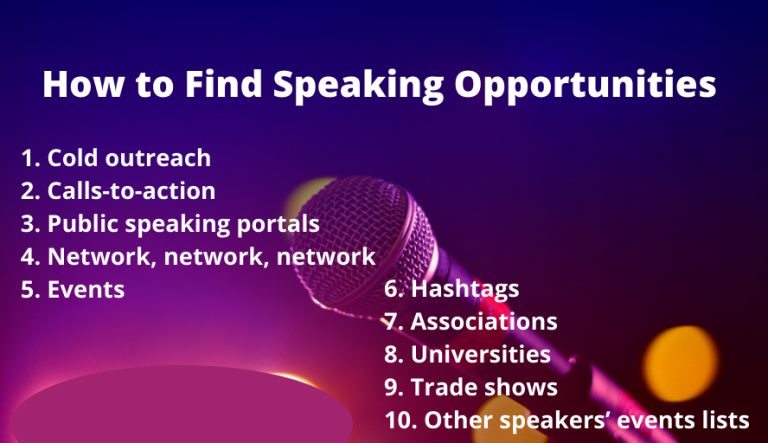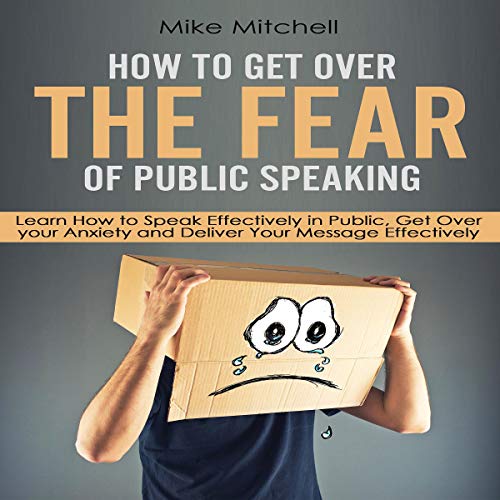Anxiety Medication in Public Speaking
Anxiety medication can help with public speaking by reducing symptoms and promoting a sense of calmness. Public speaking can often trigger anxiety and nervousness, making it difficult for individuals to present their ideas effectively.
Anxiety medication can help by reducing the physical symptoms associated with anxiety, such as rapid heartbeat and sweating, which can interfere with public speaking. This medication can also help to alleviate the psychological symptoms of anxiety, such as excessive worry and fear of judgment, allowing individuals to feel more confident and focused during public speaking engagements.
By managing anxiety symptoms, medication can be a valuable tool in improving public speaking skills and performance.
Understanding Public Speaking Anxiety
Public speaking anxiety can be overwhelming, but does anxiety medication actually help? Find out if medication is an effective solution for managing public speaking anxiety.
Public speaking anxiety, also known as glossophobia, is a common form of social anxiety that affects a significant number of individuals. It is the fear or apprehension of speaking in front of an audience. This condition can manifest as intense nervousness, rapid heartbeat, sweaty palms, trembling, and difficulty in organizing thoughts.
Public speaking anxiety can have a significant impact on individuals, both personally and professionally.
Definition And Prevalence Of Public Speaking Anxiety:
- Public speaking anxiety is a form of social anxiety that specifically relates to speaking in front of others.
- It is a common phobia, affecting approximately 75% of the population.
- Glossophobia can range from mild discomfort to extreme fear, leading to avoidance of public speaking situations.
- It can occur in various contexts, such as delivering presentations, speaking at conferences, or even participating in group discussions.
Impact Of Public Speaking Anxiety On Individuals:
- Reduced self-confidence: Public speaking anxiety can undermine an individual’s self-esteem and confidence, making it challenging to express ideas and connect with an audience.
- Impaired performance: The fear of public speaking can negatively affect an individual’s ability to deliver their message effectively. Anxiety often leads to stumbling over words, forgetting key points, and losing coherence.
- Career limitations: Public speaking skills are highly valued in many professions. Individuals with significant public speaking anxiety may find it difficult to advance in their careers or to pursue opportunities that require effective communication in front of others.
- Personal distress: Glossophobia can cause significant distress, leading to feelings of embarrassment, shame, and low self-worth. The fear of judgment from others can create persistent anxiety in various social situations.
- Social limitations: Avoidance of public speaking engagements due to anxiety can limit social and professional opportunities. Individuals may miss out on networking events, promotions, or chances to share their expertise with a wider audience.
Understanding the definition and prevalence of public speaking anxiety, along with its impact on individuals, is crucial in exploring the role of anxiety medication in managing this condition. By addressing these challenges, individuals can take proactive steps to overcome their fears and enhance their public speaking skills.
Common Symptoms And Challenges Of Public Speaking Anxiety
Public speaking anxiety can cause a range of symptoms, including rapid heartbeat, sweating, and trembling. While anxiety medication may provide temporary relief, it is important to seek professional help and practice coping strategies to effectively manage public speaking anxiety in the long run.
Physical Symptoms Of Public Speaking Anxiety:
- Increased heart rate: Individuals with public speaking anxiety often experience a racing or pounding heart, making it difficult to stay calm and focused.
- Sweating: Profuse sweating is a common physical symptom, causing discomfort and potentially leading to visible perspiration on clothing.
- Trembling or shaking: Nervousness can manifest as visible trembling or shaking in the hands, voice, or legs.
- Shortness of breath: Anxiety can lead to rapid or shallow breathing, causing a feeling of breathlessness or difficulty in catching one’s breath.
- Dry mouth: Public speaking anxiety can contribute to a dry mouth or throat, making it challenging to speak clearly or comfortably.
- Nausea or stomach discomfort: Some individuals may experience feelings of nausea, butterflies in their stomach, or general gastrointestinal discomfort prior to or during a speaking engagement.
Emotional And Psychological Challenges Faced By Individuals With Public Speaking Anxiety:
- Fear of judgment: A significant emotional challenge is the fear of being judged, criticized, or humiliated by the audience, which can lead to heightened anxiety.
- Negative thinking: Those with public speaking anxiety often struggle with negative self-talk and catastrophic thinking, envisioning worst-case scenarios and doubting their abilities.
- Loss of confidence: Anxiety can diminish self-confidence and self-esteem, making it challenging to believe in one’s abilities to deliver a successful speech or presentation.
- Social anxiety: Public speaking anxiety is often linked to social anxiety, with individuals feeling intense discomfort in social situations and fearing the potential scrutiny of others.
- Performance anxiety: The pressure to perform well and meet expectations can trigger performance anxiety, leading to excessive worry, nervousness, and stress.
- Avoidance behaviors: Many individuals with public speaking anxiety engage in avoidance behaviors, such as declining speaking opportunities or using strategies to minimize exposure to public speaking situations.
These physical symptoms and emotional challenges can significantly impact an individual’s ability to effectively communicate and share their ideas in public settings.
Examining The Role Of Anxiety Medication
Examining the role of anxiety medication in helping individuals with public speaking: can it alleviate symptoms and improve performance? Discover the potential benefits of anxiety medication for those experiencing high levels of stress and anxiety when speaking in front of an audience.
Anxiety can be a daunting obstacle when it comes to public speaking. The fear of being judged, making mistakes, or experiencing a panic attack can make even the most seasoned speakers feel overwhelmed. Thankfully, anxiety medication can be a valuable tool for managing public speaking anxiety.
In this section, we will examine the effectiveness and limitations of anxiety medication in alleviating public speaking anxiety and discuss the types of medication commonly prescribed for this condition.
Effectiveness And Limitations Of Anxiety Medication In Managing Public Speaking Anxiety:
- Anxiety medication can help individuals with public speaking anxiety feel calmer and more in control during presentations.
- It can reduce physical symptoms associated with anxiety, such as rapid heartbeat, trembling, and sweating, allowing individuals to speak with greater ease.
- Medication can provide short-term relief and prevent the onset of severe anxiety symptoms during specific speaking engagements.
- However, anxiety medication is not a cure-all solution. It does not address the underlying causes of public speaking anxiety or help individuals develop long-term coping strategies.
- Certain medication may cause side effects, such as drowsiness, dizziness, or difficulty concentrating, which can impair performance and productivity.
- Anxiety medication should be used in conjunction with therapy or other forms of treatment to achieve sustainable results and manage public speaking anxiety effectively.
Types Of Anxiety Medication Commonly Prescribed For Public Speaking Anxiety:
- Benzodiazepines: Medications like Xanax, Valium, or Ativan are often used to manage acute anxiety symptoms. They work by enhancing the effects of certain neurotransmitters in the brain, promoting relaxation and reducing anxiety.
- Beta-blockers: While primarily used to treat high blood pressure, beta-blockers such as propranolol can be prescribed off-label for public speaking anxiety. They work by blocking the effects of adrenaline, reducing the physical symptoms of anxiety.
- Selective serotonin reuptake inhibitors (SSRIs): Antidepressants like Prozac, Zoloft, or Lexapro are sometimes prescribed for individuals with chronic or generalized anxiety disorders, including public speaking anxiety. These medications help regulate serotonin levels in the brain and improve mood and anxiety symptoms over time.
Anxiety medication can offer temporary relief and aid in managing public speaking anxiety. However, it is important to recognize its limitations and consider a holistic approach that combines medication with therapy and other coping techniques. By seeking professional guidance, individuals can find the most effective treatment plan tailored to their specific needs and alleviate the anxiety that often accompanies public speaking engagements.
Alternative Approaches To Managing Public Speaking Anxiety
Discover alternative approaches to managing public speaking anxiety that don’t rely on medication. Explore techniques such as cognitive behavioral therapy, relaxation exercises, and visualization to enhance your speaking skills and overcome anxiety.
Public speaking anxiety can be a daunting challenge for many individuals. While anxiety medication can be effective in managing symptoms, alternative approaches can offer additional support and relief. Here are some alternative strategies to consider:
Cognitive Behavioral Therapy For Public Speaking Anxiety:
- Identify and challenge negative thought patterns related to public speaking.
- Practice relaxation techniques to manage anxiety before and during public speaking engagements.
- Gradually expose oneself to public speaking situations to develop confidence and reduce anxiety.
- Seek professional guidance from a therapist experienced in cognitive behavioral therapy techniques.
Breathing Exercises And Relaxation Techniques For Managing Public Speaking Anxiety:
- Deep breathing exercises: Inhale deeply through the nose, hold for a few seconds, and exhale slowly through the mouth. This can help calm the nervous system and reduce anxiety.
- Progressive muscle relaxation: Tense and then relax each muscle group in the body, starting from the toes and working up to the head. This technique can help release physical tension caused by anxiety.
- Mindfulness meditation: Practice present-moment awareness and observe thoughts and sensations without judgment. This can promote relaxation and reduce anxiety symptoms.
- Visual imagery: Imagine a calm and successful public speaking experience. Visualize positive outcomes to help reduce anxiety and boost confidence.
Remember, finding the most effective approach for managing public speaking anxiety may involve trying different techniques and combinations. It is important to consult with a healthcare provider or therapist to determine the most suitable approach for you. By incorporating alternative strategies alongside anxiety medication, individuals can enhance their ability to manage public speaking anxiety and feel more confident in delivering speeches or presentations.
Strategies For Overcoming Public Speaking Anxiety
Medication may provide temporary relief but it is not a long-term solution for overcoming public speaking anxiety. It is better to focus on strategies such as deep breathing, visualization, and practice to manage the fear and gain confidence in speaking in public.
If you are someone who gets jittery at the thought of public speaking, you are not alone. The fear of speaking in front of a large audience is a common form of anxiety known as public speaking anxiety. This anxiety can make it difficult to deliver a speech or presentation with confidence and clarity.
However, by implementing effective strategies, you can overcome your public speaking anxiety and deliver a successful presentation. Here are some strategies to help you prepare and manage anxiety during public speaking engagements:
Preparing And Rehearsing Speeches
Preparing your speech thoroughly is essential to reducing anxiety and boosting your confidence. Here are some helpful tips to follow:
- Start early: Begin preparing your speech well in advance to avoid last-minute stress. This will allow you ample time to research, organize your ideas, and create an effective outline.
- Know your audience: Tailor your speech to the needs and interests of your audience. Understanding who you are speaking to will help you choose appropriate language, examples, and anecdotes.
- Outline your speech: Create a clear and concise outline that highlights the main points you want to cover. This will give you a roadmap to follow and ensure your speech flows smoothly.
- Practice, practice, practice: The more you practice your speech, the more confident you will become. Rehearse in front of a mirror, record yourself, or ask a trusted friend or family member to listen and provide feedback.
Implementing Strategies To Manage Anxiety During Public Speaking Engagements
Conquering public speaking anxiety requires implementing strategies that can help you stay calm and composed. Here are some effective techniques to manage anxiety:
- Deep breathing exercises: Take deep breaths in through your nose and exhale slowly through your mouth. This will help reduce tension and promote relaxation.
- Visualize success: Close your eyes and picture yourself delivering your speech with confidence and poise. Visualizing a successful outcome can help alleviate anxiety.
- Use positive self-talk: Replace negative thoughts with positive affirmations. Remind yourself of past successes and believe in your ability to deliver a compelling speech.
- Practice relaxation techniques: Explore relaxation techniques such as progressive muscle relaxation or mindfulness meditation to help calm your mind and body before speaking.
- Engage with the audience: Interacting with your audience can shift the focus away from your anxiety and create a connection. Make eye contact, smile, and encourage participation through questions or anecdotes.
By implementing these strategies, you can gradually overcome your public speaking anxiety and become a more confident and effective speaker. Remember, practice makes perfect, so keep honing your skills and pushing yourself outside of your comfort zone. With time and perseverance, you will master the art of public speaking.

Credit: www.theatlantic.com
Tips For Enhancing Public Speaking Skills
Enhance public speaking skills with these helpful tips, as anxiety can hinder effective communication. While anxiety medication may offer temporary relief, it’s essential to focus on techniques like deep breathing, visualization, and practice to build confidence and deliver impactful speeches.
Public speaking can be a nerve-wracking experience for many individuals, especially those who struggle with anxiety. While anxiety medication can provide some relief, it is important to remember that it is not a cure-all solution. However, there are various tips and techniques that can help enhance public speaking skills and boost confidence on stage.
In this section, we will explore some effective strategies for becoming a better public speaker.
Seeking Opportunities For Public Speaking Practice:
- Join a toastmasters club: Toastmasters International is a non-profit organization that provides a supportive environment for individuals to practice their public speaking skills regularly. It offers structured programs, workshops, and opportunities to deliver speeches in front of a friendly audience.
- Participate in local events: Look for local events that provide opportunities for public speaking, such as open mic nights, panel discussions, or workshops. These events often welcome speakers of all levels, allowing you to gain experience in a supportive and encouraging environment.
- Volunteer for leadership roles: Take advantage of volunteer opportunities that require public speaking, such as leading a team, organizing fundraisers, or hosting community events. This will give you the chance to practice speaking in front of a group and develop your communication skills.
Utilizing Feedback And Constructive Criticism To Improve Speaking Abilities:
- Join a speaking group or find a mentor: Seek a speaking group or individual mentor who can provide guidance and constructive feedback on your speaking abilities. They can help identify areas for improvement and offer valuable insights to enhance your skills.
- Record and review your speeches: Recording your speeches allows you to evaluate your performance objectively. Watch or listen to your recordings to identify areas where you can improve, such as body language, vocal delivery, or clarity of message.
- Ask for feedback from trusted individuals: Request feedback from trusted friends, colleagues, or mentors after delivering a speech. Their observations and suggestions can help pinpoint areas where you excel and areas that require improvement, enabling you to refine your public speaking skills.
By seeking opportunities for practice and actively utilizing feedback and constructive criticism, you can develop your public speaking skills over time. Remember, becoming a confident and effective public speaker takes practice and dedication. With perseverance, you can overcome anxiety and excel on stage.
Frequently Asked Questions Of Does Anxiety Medication Help With Public Speaking
Does Anxiety Medication Help With Public Speaking?
Yes, anxiety medication can help with public speaking by reducing symptoms of anxiety, such as nervousness and fear. It can help individuals feel more confident and relaxed when speaking in public, allowing them to deliver their message effectively. However, it is important to consult with a healthcare professional to determine the most suitable medication and dosage for your specific needs.
Conclusion
Public speaking can be a daunting task for many individuals, especially for those who struggle with anxiety. Thankfully, anxiety medications offer a potential solution to ease the fear and nervousness associated with public speaking. These medications work by targeting the underlying anxiety, allowing individuals to feel more calm and composed during speaking engagements.
While anxiety medication can be helpful, it is important to remember that it is not a one-size-fits-all solution. The effectiveness of these medications can vary from person to person, and it is crucial to work closely with a healthcare professional to find the right medication and dosage.
Additionally, medication should be used in conjunction with other coping strategies, such as therapy and relaxation techniques, for optimal results. Ultimately, anxiety medication can be a valuable tool in alleviating the anxiety associated with public speaking, empowering individuals to confidently share their thoughts and ideas with others.



